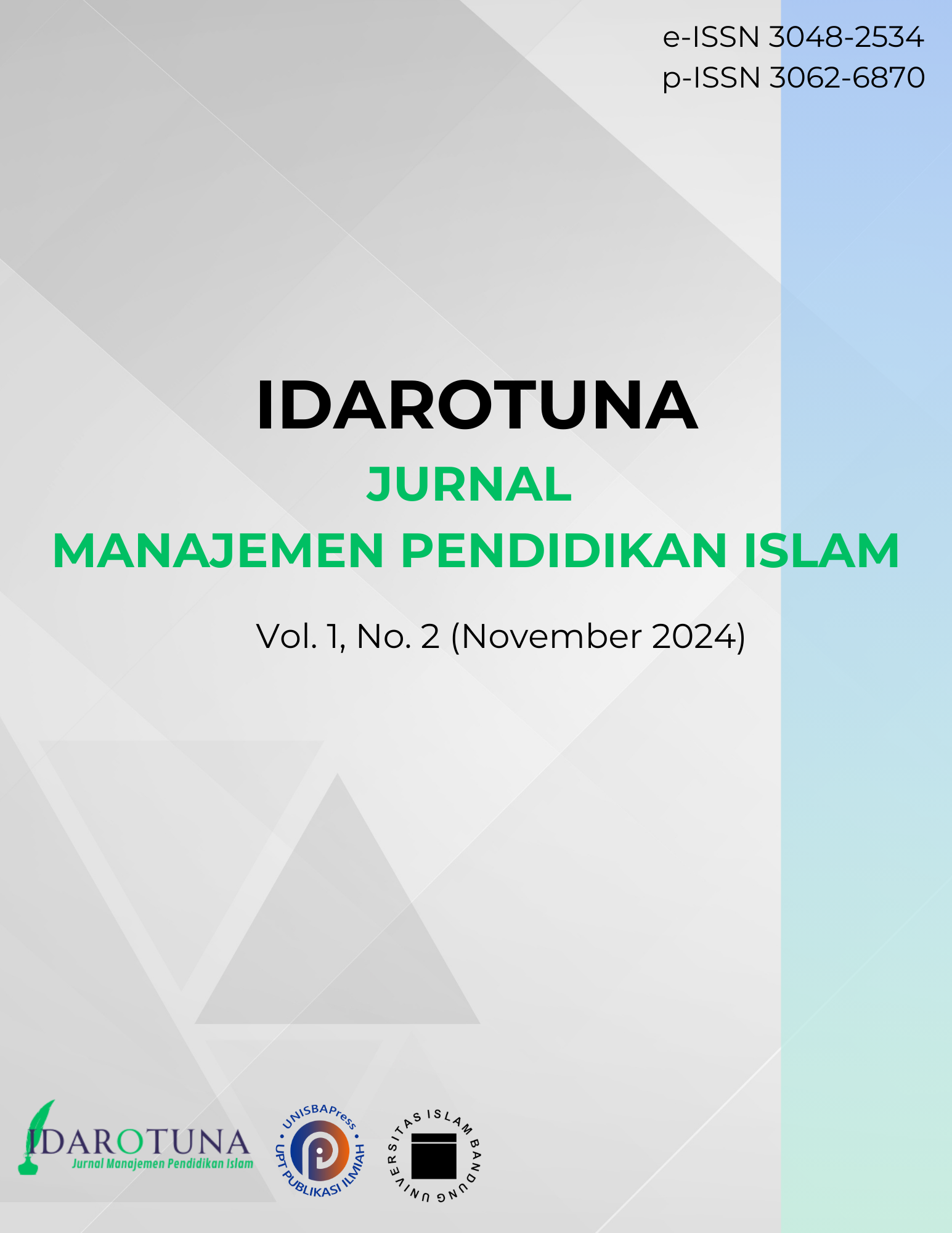Ontology Of Islamic Religious Education: Foundations Of Islamic Progress In The Modern Era
DOI:
https://doi.org/10.29313/idarotuna.v1i2.5595Keywords:
Qauliyah Verse; Qauniyah verse; Al-Qur'an; causalityAbstract
Islamic Religious Education (PAI) plays a vital role in building the foundation of Islamic thought and attitudes in facing modern challenges. However, limited understanding of the Quran, particularly in distinguishing between qauliyah verses (normative) and qauniyah verses (scientific), has caused Muslims to lag behind in mastering science and technology. This study aims to examine the importance of integrating the understanding of qauliyah and qauniyah verses in Islamic religious education to address the challenges of scientific and technological development in the modern era. The background of this research is that many Muslims tend to understand the Quran partially, emphasizing only ritual and spiritual aspects (qauliyah verses) without exploring the scientific potential contained in qauniyah verses. The method used in this research is a literature study examining scientific works, books, and journals related to the integration of religious knowledge and science. The results show that to create a generation of Muslims capable of competing globally, Islamic religious education needs to integrate both types of verses, enabling Muslims to understand that science is part of worship and a means to achieve civilizational progress in accordance with sunnatullah.
Downloads
Published
How to Cite
Issue
Section
License
Copyright (c) 2024 Ilyas Rohili, Adang Hambali

This work is licensed under a Creative Commons Attribution-NonCommercial-ShareAlike 4.0 International License.









